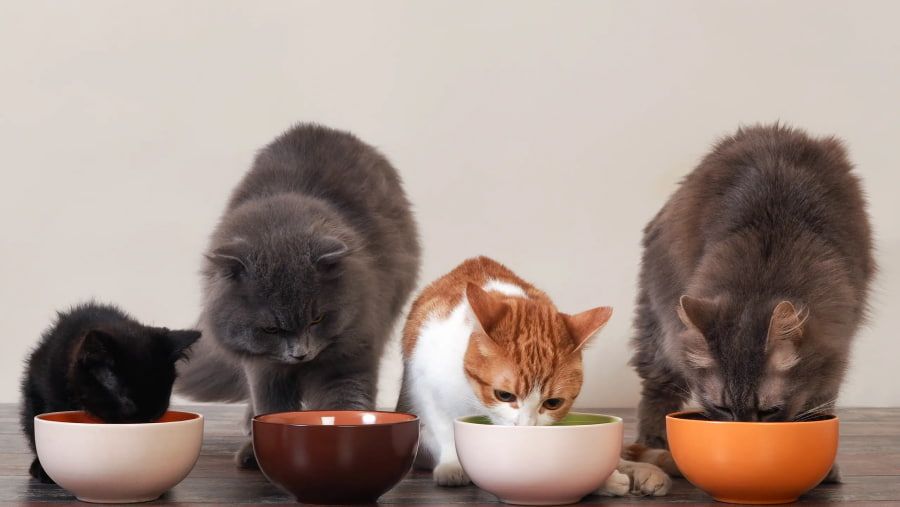Cat Diet: Safe Choices of Human Food
As a responsibility to care for the pets in our homes, it is vital to understand your cat's eating habits and appropriate food choices. The purpose of this article is to introduce some human foods that are safe for cats to eat.

1. Your cat's dietary needs
Before we can discuss what mankind’s foods cats can eat, we need to understand the dietary needs of cats. Cats are predators and require high-protein foods to meet their needs. In addition, cats need the right amount of fat, vitamins and minerals. Therefore, whether it is mankind’s food or commercial cat food for cats, these essential nutrients should be provided.
2. Safe human food choices
Although your cat's diet should be dominated by cat food specifically designed for them, some of the following human foods can be given to your cat occasionally as a snack or as a supplement to their diet:
Cooked meat: Cats can eat cooked meat, such as cooked chicken or beef. Make sure the meat is thoroughly cooked and that the bones, skin and condiments are removed, as certain condiments can be harmful to cats.
Fish: A moderate amount of fish is good for cats, but care should be taken to remove the bones and ensure that the fish is cooked. Note that certain fish species (such as raw mackerel) may contain thiamine enzymes that may impair your cat's absorption of vitamin B1, so too much raw fish or raw seafood should be avoided.
Cooked vegetables: Certain vegetables, such as carrots, squash, and peas, can be a healthy vegetable supplement for your cat. Make sure the vegetables are cooked or steamed to ensure that the cat can better digest and absorb the nutrients in them.
Small amounts of fruit: Some fruits, such as watermelon or bananas, can be used as an occasional cat snack. However, certain fruits (such as grapes and raisins) are poisonous and should never be given to cats.
Hard boiled eggs: Hard boiled eggs are a rich source of protein and can be used occasionally as part of a cat's diet. Make sure the eggs are well cooked and don't add salt or condiments.
3. Potentially harmful foods
In addition to the above safe human foods, there are some foods that are harmful to cats and should never be given to cats. Here are some potentially harmfu; foods:
Caffeine: Caffeine contain substances that are toxic to cats and can cause central nervous system and heart problems. Therefore, cats should never be given coffee or foods and drinks containing caffeine.
Onions and garlic: Compounds in Onions and garlic are toxic to your cat's red blood cells and can lead to anemia. Therefore, avoid adding Onions and garlic to your cat's food.
Dairy products: Most adult cats are lactose intolerant, and ingesting dairy products can cause indigestion and diarrhea. Avoid feeding your cat milk, cheese, and other dairy products.
Grapes and raisins: Grapes and raisins are toxic to cats and can lead to kidney failure. Make sure your cat stays away from the fruit.
All in all, your feline's eating regimen ought to be founded on feline food explicitly intended for it, as these food varieties give total nourishment. Be that as it may, felines can periodically partake in some protected human food as a bite or supplement diet. While picking human food, make a point to follow the accompanying standards: Cook the food well, eliminate the bones, skin, and toppings, and serve it with some restraint. Simultaneously, felines ought to never be given possibly unsafe food varieties like chocolate, caffeine, Onions, garlic, dairy items, and grapes and raisins. To guarantee your feline's well-being and prosperity, counsel your veterinarian for additional exhortation and direction on your feline's eating routine.
Guess you like
-

Cheap Mobility Scooters for US Seniors
-

Where to Find All-Inclusive Luxury Overwater Bungalows Without Straining Your Budget
-

How to Choose the Right Online Marketing Degree
-

Unlock Affordable High-Speed Internet for Businesses
-

Why We Need Cybersecurity Software to Protect Our Data
-

Heat Pumps: A Wise Choice for Heating Old Buildings?



